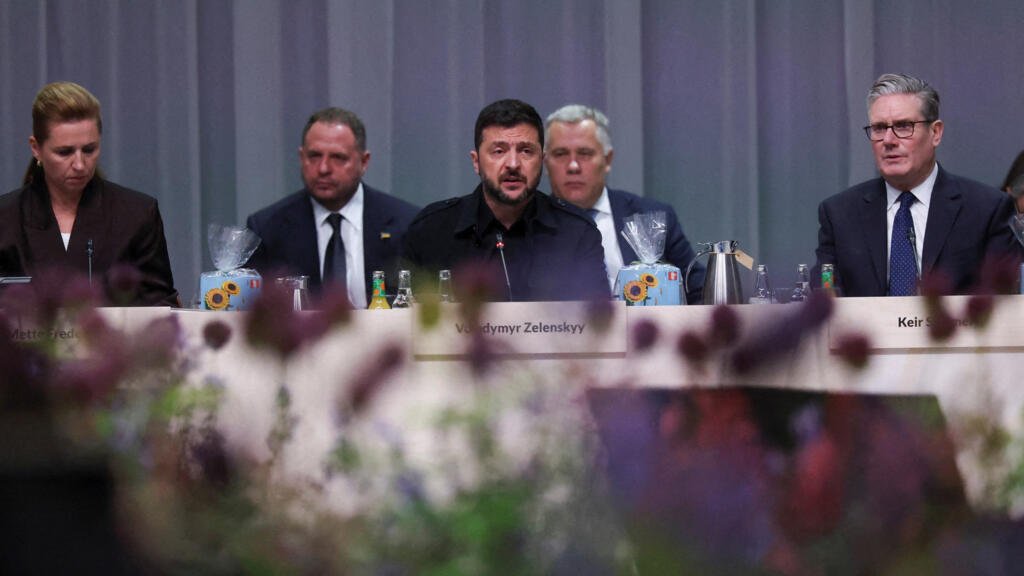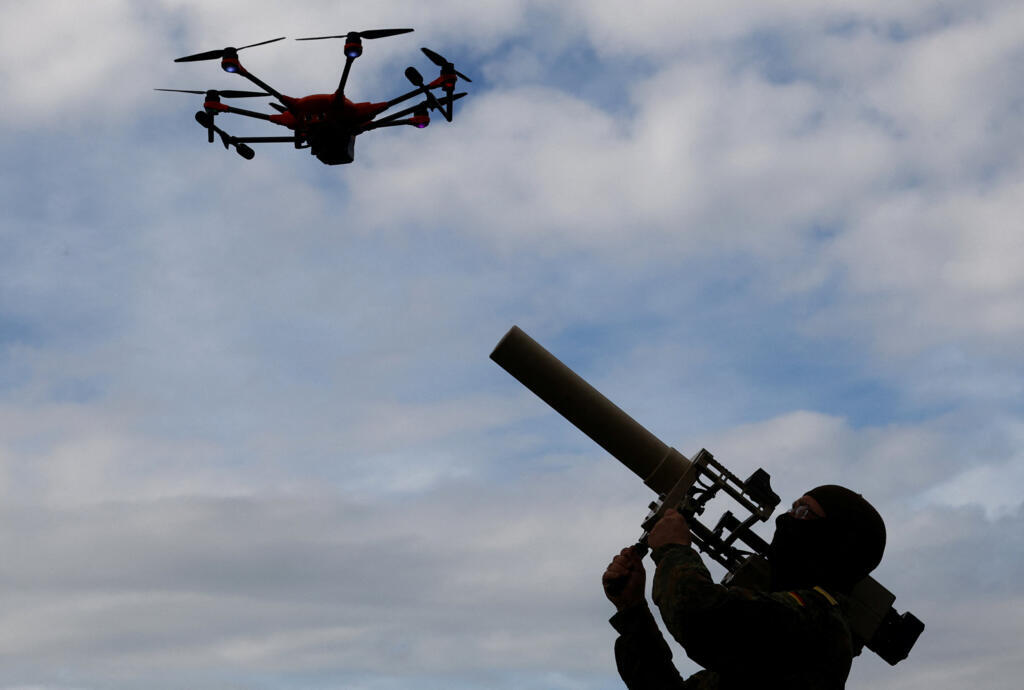
Ukrainian president Volodymyr Zelensky joined European Union leaders in Copenhagen on Thursday as they push ahead with plans to build a continent-wide defence shield against Russian drones. The summit follows a series of airspace intrusions that have rattled Denmark, Poland and Estonia, highlighting gaps in Europe’s security.
“The recent drone incidents across Europe are a clear sign that Russia still feels bold enough to escalate this war,” Zelensky said as he arrived for the talks.
“It was never just about Ukraine, Russia has always aimed to break the West and Europe.”
EU leaders meeting in the Danish capital on Wednesday endorsed the idea of a coordinated system of sensors, weapons and technology to detect and neutralise drones.
They said the move was urgent given Russia’s ongoing war in Ukraine and what they called Moscow’s attempts to destabilise its neighbours.
“Europe must be able to defend itself,” Danish prime minister Mette Frederiksen said. She called for more investment in drones, anti-drone systems and a continent-wide network to respond to threats.
Zelensky offered Ukraine’s “war-tested” expertise in countering drone attacks, telling leaders: “If the Russians dare to launch drones against Poland, or violate the airspace of northern European countries, it means this can happen anywhere. We are ready to share this experience with our partners.”

EU leaders plot defence boost in shadow of Denmark drones
‘Russia tries to test us’
The informal summit came just days after unmanned aircraft disrupted flights in Denmark, prompting a nationwide temporary ban on drones.
Poland has reported repeated breaches of its airspace by Russian drones, while Estonia accused Russian fighter jets of flying over its territory. NATO scrambled fighter jets, helicopters and a Patriot missile defence system to respond to the Polish incident.
European Commission president Ursula von der Leyen was blunt about Moscow’s tactics.
“Russia tries to test us. But Russia also tries to sow division and anxiety in our societies. We will not let this happen,” she said.
Von der Leyen’s call for a “drone wall” – a network of early-warning sensors and weapons along Europe’s eastern flank – has gained traction since she first raised it last month.
NATO secretary general Mark Rutte described it as “timely and necessary”, a view now backed by many EU leaders.
The Kremlin has denied responsibility. Spokesman Dmitry Peskov dismissed the “drone wall” idea, saying “as history has shown, erecting walls is always a bad thing".
French president Emmanuel Macron said Western countries should take a tougher line when confronted by Russian drones.
“It’s very important to have a clear message. Drones which would violate our territories are just taking a big risk. They can be destroyed, full stop,” he said.
Romanian prime minister Nicosur Dan, whose country has already seen Russian drones cross over from Ukraine, warned that his forces would shoot down the next one to violate Romanian airspace.
French military to help counter drones over Denmark ahead of EU summit
Disagreements over priorities
While leaders endorsed the overall plan, they differ on how to make it work. Frederiksen and Finnish prime minister Petteri Orpo stressed the need to act quickly, warning that Russia will keep probing Europe’s defences.
French president Emmanuel Macron argued for a broader deterrence strategy, including early-warning systems and long-range strike capabilities. Italy’s Giorgia Meloni said the EU must also pay attention to threats on its southern borders.
Macron also urged Europe to crack down on what he called Russia’s “shadow fleet” of ageing oil tankers that Moscow uses to evade restrictions on exporting its oil.
“It is extremely important to increase the pressure on this shadow fleet, because it will clearly reduce the capacity to finance this war effort,” he said, noting that France had moved this week to hold a blacklisted tanker linked to Russia.
Funding Ukraine with frozen assets
The summit also discussed a proposal to use Russian assets frozen in Europe to help finance a large loan for Ukraine. Some member states back the idea, saying Moscow should help pay for the war it started. Others remain cautious, citing legal and financial risks.
The EU plan could raise around €140 billion. Proponents say it is needed to help Ukraine plug budget shortfalls – and that Russia, not European taxpayers, should ultimately foot the bill. But Belgium, which holds most of the frozen assets, is wary.
“We’re going to move to uncharted waters. This is very, very risky,” Belgian Prime Minister Bart De Wever said. He wants firm commitments from other EU leaders to share potential liability to shield Belgium from any Russian retaliation.
Von der Leyen said on Wednesday it was clear that the risk should not fall only on Belgium’s shoulders and promised to “intensify” talks to find a way forward.
The Kremlin has denounced the plan as “pure theft”.
Zelensky is expected to use his visit on Thursday to urge EU leaders to keep up military and financial support for Kyiv, as United States backing weakens.
(with newswires)







